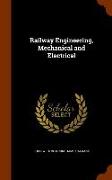A Righteous Cause
BücherAngebote / Angebote:
The Great Commoner unenthusiastically summed up. (Oddly, the full sobriquet never appears.) In this latest addition to the Library of American Biography series, Cherny (History, San Francisco State U.) presents spellbinder William Jennings Bryan (1860-1925) - who three times lost the presidency, yet saw his causes triumph - as the sum of family and ethnic/regional influences: "Bryan's religious faith converged with his Jeffersonian political principles to buttress his belief in the people and his commitment to controlling the new economic behemoths of industrial America." Though Cherny twice refers to Bryan's "magnetic personality, " there's no evidence of it. (Personal characterization, indeed, is a near-blank.) More importantly, though he ultimately pronounces most of Bryan's causes worthy, you'd hardly know it from the text. Both series-editor Hamlin's introduction and Cherny's account make a point of farmer over-borrowing as bringing on the farmer/Populist demand for easier money, or "free silver, " Bryan's first crusade as 1896 Democratic candidate, but they take no cognizance of debt-appreciating deflation or the international food crisis, and Cherny appears to give no credence to other farmer grievances (like high railroad rates and storage charges). Other concrete Bryan espousals - direct election of senators, the secret ballot, the income tax, anti-imperialism and specifically freedom for the Philippines (focus of his second, 1900, presidential campaign), international conciliation, women's suffrage - are simply thrown into the hopper. Those issues that are discussed are the more technical ones of tariff and banking reform (in which Bryan had a hand as Wilson's secretary of state), the one cause of which he's said to be the foremost proponent is prohibition. For a brief biography, moreover, there is a surfeit of local, Nebraska political detail. (Cherny is the author of Populism, Progressivism, and the Transformation of Nebraska Politics, and that, plus his opposition to Laurence Goodwyn's "counterculture" interpretation of Populism, inflects the whole enterprise.) On the other hand, Cherny doesn't dismiss Bryan as a humbug or a trifler - he assigns him a role as "a fighter" who rallied many to his causes. The trouble is that the fighter doesn't come alive and the causes don't loom as worth fighting for. (Kirkus Reviews)
Folgt in ca. 10 Arbeitstagen





